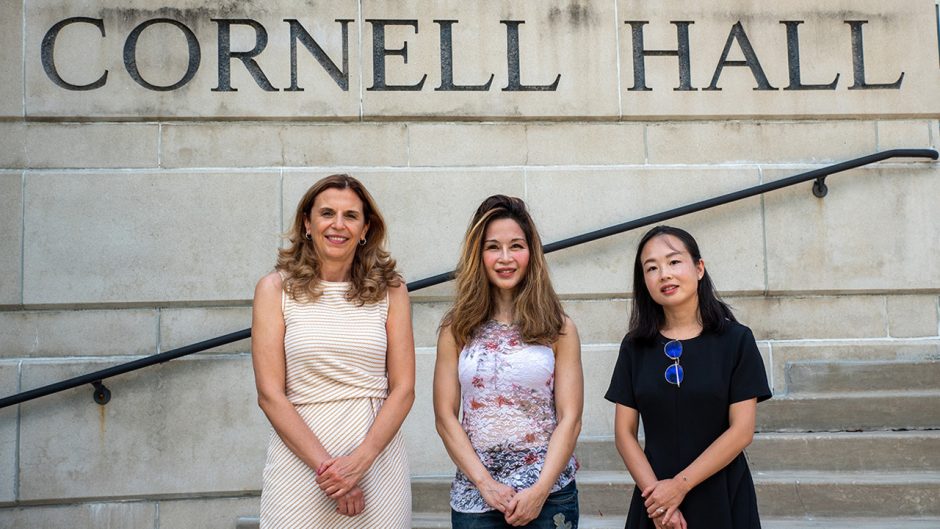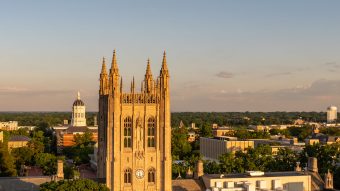By Kathy Deters

Aug. 20, 2025
As quantum computers stand at the threshold of having the capability to solve problems and answer questions more quickly than even the world’s most powerful supercomputers, forward-thinking researchers at the University of Missouri’s Robert J. Trulaske, Sr. College of Business are leading the way in efforts to understand and harness the technology’s potential.
Kuntara Pukthuanthong-Le, Trulaske’s Marie M. and Harry L. Smith Endowed Chair Professor of Finance, is applying quantum computing to financial markets to address computational bottlenecks in learning, prediction and decision-making. Quantum computers use quantum bits, or qubits, to process and solve complex problems exponentially, creating the opportunity for financial agents to leverage the technology in order to develop and execute trading strategies much more quickly, and in today’s high-paced financial industry speed provides a competitive advantage.
“Quantum computing could fundamentally transform financial markets by enabling faster and more accurate processing of complex data,” Pukthuanthong said.
Pukthuanthong’s research will look at how quantum technology can be used by financial practitioners to access analysis in real time and examine whether its use could lead to more efficient financial markets and more timely price adjustments in the future.
“Quantum computing isn't just about faster calculations — it's about rethinking financial economics from the ground up,” Pukthuanthong said. “For hedge funds, a quantum-powered algorithm could analyze hundreds of risk factors in seconds — transforming how quickly trading strategies are developed or mispricings are corrected, potentially offering a speed advantage in highly competitive global markets. Our conjecture is that computational limits explain up to 20-30% of market inefficiencies, like persistent mispricing or contract failures, beyond traditional factors like irrationality.”
While promising, quantum computing faces significant hurdles in financial applications, Pukthuanthong said, including data challenges, ethical risks, cybersecurity threats to trading platforms and a global shortage of experts in quantum finance.
Pukthuanthong cites the availability of specialized resources at Mizzou, such as Missouri’s first IBM Quantum Innovation Center, as providing a strong foundation to help quantum researchers understand these hurdles and find solutions. The center offers researchers and institutions access to advanced quantum computing through IBM’s cloud-based platform.
“I'm thrilled to be advancing quantum research at the University of Missouri, where resources like our Mizzou Quantum Innovation Center and Mizzou's College of Engineering enable real progress,” Pukthuanthong said.
Researchers in Trulaske’s Marketing Department hope to harness quantum’s capabilities to help public service providers optimize their communications on social media platforms. Samuel M. Walton Distinguished Professor of Marketing Detelina Marinova and Trulaske PhD student Zhuping (Zoe) Li are bridging classical and quantum computing methods to analyze the language used in social media posts by public service providers in the United States, Canada and United Kingdom to determine which attributes of published information are most effective at communicating with the public, and how those communications influence public sentiment.
The study is designed to help public service providers craft their social media posts to communicate more clearly and effectively with the customers they serve, leading to increased public trust and customer wellbeing. It will also offer public service providers a greater understanding of the spread of misinformation and how to mitigate it. The researchers hope it will help the public better understand social media communications from these providers, too.
Li sees the research as having broader implications, as well. A gap has often existed between advancements in computer science and their practical applications in marketing, she said. It’s a gap she plans to shrink by demonstrating how quantum computing can be used in her own marketing research.
Read more from the Trulaske College of Business


